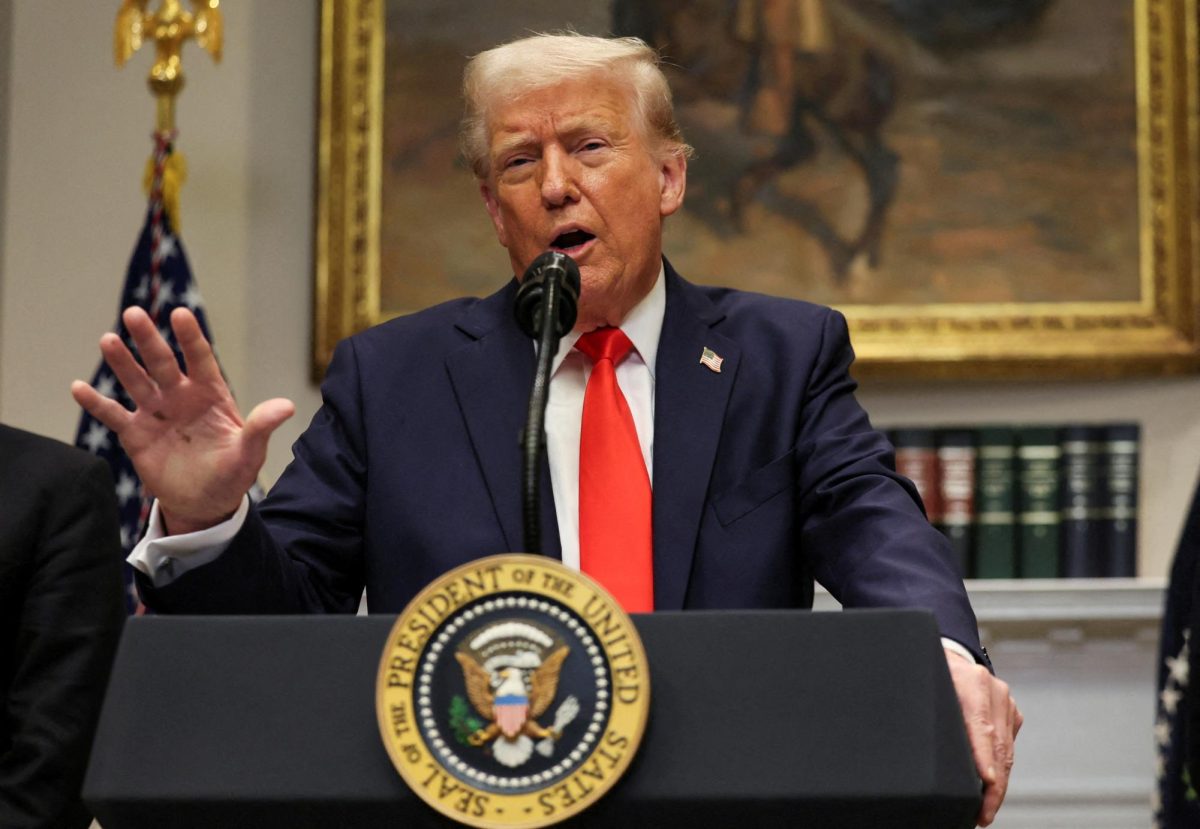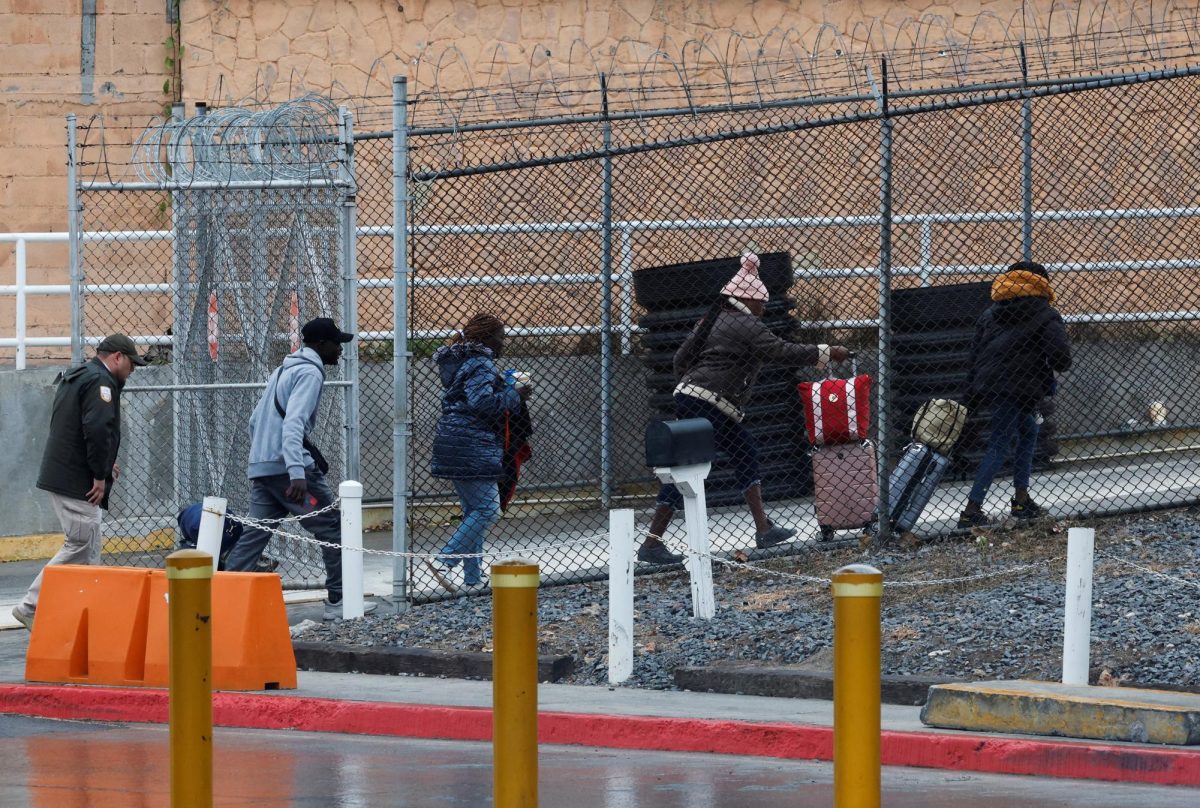Bombs Away: Military action must be taken against Iran
By Zach Praiss
Imagine a world where Iran has the bomb.
Indeed, it’s a difficult situation to predict; however, it is closer to becoming a reality than ever before.  Today, as Iran progresses towards having the capacity to build a nuclear bomb in the very near future, we must carefully consider what would the impact be if Iran had the bomb and subsequently how can we prevent a nuclear Iran?
Over the past decade, Iran has been enriching uranium and developing the necessary technology to construct a nuclear bomb. Â Although the Iranian government continues to claim that their nuclear development is for the sole purpose of peaceful nuclear energy, it has repeatedly denied access for nuclear experts into their nuclear facilities and refused to receive nuclear energy technology and assistance from many countries, evoking suspicion and concern over their true nuclear objective, building a nuclear bomb.
If Iran had the bomb, it would first and foremost represent a possible existential threat to the State of Israel.  Iranian President Mahmoud Ahmadinejad, who denies the history of the Holocaust, has repeatedly called for Israel to be wiped off the map.  These threats, whether they are serious or a bluff, cannot be overlooked by the international community like Adolf Hitler’s remarks seven decades ago.
The possibility of Iran acquiring the capacity to build a nuclear bomb also presents a significant threat to the stability of the entire Middle East. Â If Iran had the bomb, it would immediately spark an arms race across the Middle East as other Sunni countries such as Saudi Arabia and Egypt would likely start to build their own nuclear bombs to counter the growing regional and nuclear power of the Shiite Iranian regime.
Yet the impact of a nuclear Iran would extend beyond just threatening the existence of Israel and destabilizing the Middle East, to posing as a serious threat to the national security of the United States and global order of peace.
Today, Iran is the number one exporter of terrorists in the world. Â Iran is the center point of the axis of evil, sponsoring terrorist efforts against the United States in Iraq and Afghanistan, supporting the Syrian government, and backing the terrorist organizations of Hamas and Hezbollah. Â If Iran had the bomb, there is a grave threat that a bomb could fall into the wrong hands, threatening the security of the entire world. Â If presented with the opportunity to use a nuclear weapon, a terrorist organization would not face the same sense of mutually assured destruction like two dueling nuclear countries.
In addition, a nuclear Iran would drastically alter global foreign policy as every economic, political, and military effort in the Middle East on the part of the United States, Israel, Europe, and possibly any country could be brought into question by the nuclear armed Iranian regime.
Now, we are months away from Iran having the capability to build a nuclear weapon. Once it reaches that point, the Iranian regime will be in a position to unilaterally decide to build a nuclear weapon in a short amount of time.  Then, once Iran has the bomb, there’s no going back.  Therefore, it is imperative that Iran’s nuclear program is stopped before the Iranian regime has the capability to build a nuclear weapon.
Unfortunately, the strict international economic sanctions and oil embargo organized by President Barack Obama will not bring an end to Iran’s nuclear program.  Today, Iran continues to enrich uranium and develop missiles that could potentially hit Israel, Europe, and the United States in the future.
It is time we realize that there is no way to prevent a nuclear Iran except for a decisive military air strike that would effectively destroy all of Iran’s nuclear facilities.  Such a military effort, however, would come with an unpredictable retaliation and tremendous loss of life as Iran would likely respond by showering Israel with rockets from Hamas in the south in Gaza and Hezbollah in the north.  Most of the global community would condemn Israel, but in reality, people across the world would be thankful knowing that Iran would not be added to the small list of countries with nuclear weapons.
As a country that has repeatedly called for the elimination of the State of Israel and the number one exporter of terrorists in the world, Iran having a nuclear weapon would pose a significant threat to not only Israel, but also, to the stability of the Middle East and the entire global sense of security.  Therefore, despite the risk of repercussions, Israel has the right to protect itself, and to act swiftly and effectively when the time is right hopefully with support of the United States to strike and destroy Iran’s nuclear facilities to prevent a nuclear Iran and preserve the global order of peace.
Peace Out: The folly of bombing Iran
By Paul Lisker
The threat of a nuclear Iran looms heavily on people’s minds; it seems as though America simply can’t escape Middle Eastern conflict in this modern age. Indeed, many have warned of the inevitability of Iran acquiring, sooner or later, nuclear capacity. With that date inexorably approaching, the prospect of a military strike by either the United States or Israel—the nation most directly threatened by an armed Iran—seems to increase in likelihood. American Defense Secretary Leon Panetta has even warned of a possible strike by Israel as early as April in the hope of delaying Iran’s nuclear program.
Yet despite the unarguable dangers of an armed Iran to international order, a military strike does not stand out as the prime solution. My intention is neither one of naïve disregard for the various warning signs, nor of the dangers of a nuclear Iran; I just can’t believe that the Cassandra prophesies circulating through the media will lead either the United States or Israel to determine that the dubious benefits of military action outweigh the non-negligible risks attributed to a strike.
This is, it seems, the central point that ultimately makes the con side of the argument untenable. Direct military aggression, an act of willful antagonism, should only be pursued when the likelihood of permanent, or at the very least long-lasting, success makes the course a truly viable option. Inevitably, mentioning the possibility of an American or Israeli strike evokes the image of such successful missions as Israel’s Operation Opera that crippled Iraq’s Osirak nuclear reactor in 1981, Operation Orchard that destroyed a purported Syrian nuclear reactor, and the often-romanticized Operation Entebbe that remains as perhaps the quintessential Israeli self-defense operation. Yet Israel is certainly neither infallible nor invincible, a fact that must not be forgotten in these complex times.
An attack on Iranian nuclear reactors cannot be the solution to a nuclear Iran. Iran’s nuclear reactor sites are spread out through their vast territory. Moreover, they’ve been intelligently constructed underground and heavily fortified in ways that would necessitate heavy or repeated aerial strikes, a fact further complicating success. As such, neither Israel nor America would be able to unequivocally achieve its goal. We must not overestimate the power of the American military. As such, with success not guaranteed, or even probable, military action should not be pursued.
The implications of an attack, be it a success or a failure, could be disastrous.
First of all, it could incite retaliatory measures by Iran against Israel, either by a direct attack, or through Hamas or Hezbollah, which so often serve as Iranian proxies for terror. Moreover, it would precipitate war; it is a folly to believe that an attack on Iranian reactors would be isolated to a solitary event; it would mark the beginning of another war in the Middle East. An attack on Iran is a commitment to target Iran’s nuclear facilities whenever the possibility of its acquisition of nuclear power is notable. With the psychologically taxing Iraq Wars behind us and a costly Afghanistan War coming to a close, America just can’t possibly be willing to make such a binding decision in the Middle East once again.
Furthermore, the international community must not underestimate the galvanizing power of a common enemy for Iran; an attack by either Israel or America would give Iranian leaders a rallying cry for resuming, continuing, and even concentrating more on arming. An attack would undervalue the reforming power of the Arab Spring, and alienate Iranian dissidents that present the promise of a new, moderate regime.
The international community should continue to unite with sanctions to economically cripple Iran. These sanctions should continue to be enacted on Iran so long as it refuses to cooperate, and new sanctions should be imposed on those countries, such as Pakistan, that break the economic blockade. We must strike the heart of its economy; oil embargoes will, with time, effect change.
The danger of the bomb cannot be eliminated, but taking these steps will be noticed by Iran’s regime and with multilateral backing will be effective in at least diminishing their will. The nuclear program may continue, and Iran may eventually acquire the bomb, but such actions will slow their progress. Despite the danger a nuclear Iran poses, the United States and Israel must avoid a military engagement that will motivate Iran to invigorate their nuclear pursuit and incite disastrous retaliatory measures. There is no perfect solution, but we must recognize that a military solution unlikely to succeed should not be undertaken.












